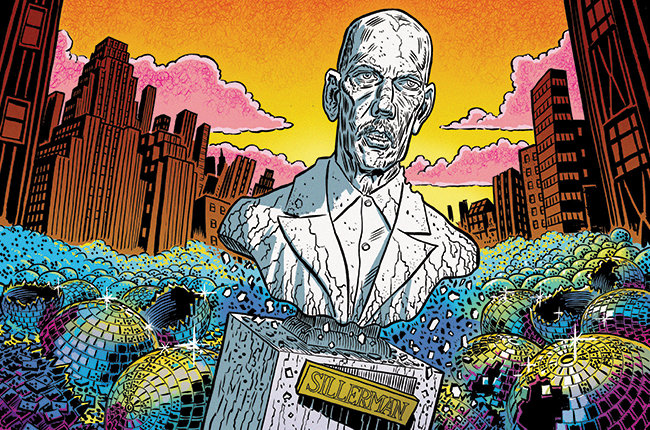As the dance music boom became a roar in 2012, SFX founder Robert Sillerman, who had sold previous incarnations of his multifacted live entertainment company for billions, saw his chance. He began snatching up properties in the genre, and with financing and proceeds from a splashy $260 million IPO in October 2013, ultimately acquired a spate of EDM promoters — including ID&T (with its Tomorrowland, TomorrowWorld and Mysteryland festivals), Made Event (Electric Zoo, which suffered three drug-related deaths in 2013) and Disco Donnie Presents — along with dance-music download and streaming service Beatport, ticketing company Paylogic, artist management firm TMWRK and a number of creative and digital marketing companies. Within two years, he had built what he hoped was an EDM powerhouse.
Sillerman’s EDM rager, though, may have already peaked. In the last 13 months SFX has endured multiple management changes, suffered from liquidity problems, seen its stock plummet, delivered late royalty payments to labels and been targeted by a lawsuit against Sillerman, 67. Even his attempt at a deus ex machina — solving the stock challenges by taking the company private — has been plagued by financing problems and increasingly pessimistic investors.
Sillerman’s formula — to create a focused conglomerate through acquisitions of stand-alone companies — has worked in the past. In the 1990s, he rolled up 71 radio stations before selling to Capstar Broadcasting for $2.1 billion in 1997. Next, he bought up regional concert promoters and sold the resulting company, SFX Entertainment, to Clear Channel in 2000 for $4.4 billion.
But where competitors like Live Nation have acquired EDM properties as a way to expand and further diversify their holdings, SFX’s strategy looks more like a haphazard spree. Says one insider: “He overpaid in cash and left individual operators with complete freedom to manage the businesses they just sold. “And the company’s overall performance has been disappointing, says Steven Azarbad, chief investment officer at Maglan Capital, a former SFX shareholder. “It has overpromised and underdelivered on so many levels,” he says, noting that SFX has grown revenue as promised but hasn’t been able to convert popular festivals and brand sponsorships into cash flow and earnings growth. “It’s hard to have confidence in the business.”
Onlookers question SFX’s leadership. “Sillerman showed no cohesive strategy in the companies he was acquiring,” says a dance music insider. “It was as if he thought hat just because he brought in companies with some smart people onboard, they’d come up with something amazing, without any clear direction from SFX executives.” In fact, SFX has had three rounds of executive changes in 13 months. Greg Consiglio was named president/COO in January before moving over to president/CEO of Beatport in July (which an SFX rep says was always planned). The sponsorships arm, vital to SFX’s business model, lost chief marketing officer Chris Stephenson in January and senior vp Javier Farfan two months later. And Sillerman and Sheldon Finkel, SFX’s chairman of strategy and development, are defendants in a $100 million lawsuit by three men who claim they helped build SFX but didn’t receive their promised equity shares. Making matters worse, in early August, Beatport delayed royalty payments to some labels and artists, telling them through email that certain funds were “trapped” by SFX’s going-private process. A press release issued two days later announced that payments would resume the following week, but the damage was done: Sillerman said he was “deeply embarrassed” by his company’s “inexcusable” actions.
It has all taken a toll on SFX’s stock, to say nothing of its reputation. The day before earnings were released Aug. 10, SFX shares lost nearly 23 percent of their value and hit an all-time low of $2.26, an 83 percent decline from the $13 IPO price in 2013. Second-quarter earnings showed SFX lost $47.9 million but grew revenue 48 percent to $121 million (and the stock did rise as much as 8 percent the following day).
Sillerman doesn’t have time on his side, either. A deadline of Aug. 13 has been set to secure financing for his proposal and take SFX private. The market seems to have little faith: The Aug. 10 closing price of $2.36 was 55 percent below Sillerman’s $5.25 bid. (If investors thought they would be offered $5.25, the spread between closing and offer prices would be small.) As of press time on Aug. 12, no other bid is on the table (says a source: “Bob’s shaken every tree”), although SFX says it received ”indications of interest” regarding ”various components” of its business.
Yet for all the drama and uncertainty, Sillerman could still pull it off. Azarbad calls SFX’s missteps ”unfortunate, because I do think it’s a fantastic business. These are good brands and festivals, but it’s not materializing on the bottom line.”
Josh Baron, co-author of Ticket Masters: The Rise of the Concert Industry and How the Public Got Scalped, adds, “It’s still early days for both electronic music in North America and for a verdict on whether SFX is a success.”
Rich Tullo, an analyst with Albert Fried & Co., offers, “The second quarter was good enough to enable him to line up financing on a revenue basis. Give it a couple of years, and they should make [earnings of] $50 million to $100 million annually without much of a problem.”
He and Azarbad believe Sillerman can acquire the company, but the public perception may be another matter. “Sillerman needs to step back and find a more authentic CEO who understands an industry as delicate as dance music,” says the EDM insider. “These people can smell inauthenticity a mile away, and will go out of their way to avoid it.”
On the claim that SFX has overpromised and underdelivered, an SFX rep says, “We can understand that point of view. However, it’s really just a matter of taking longer to deliver than we expected. We remain focused on building a world-class company.”


